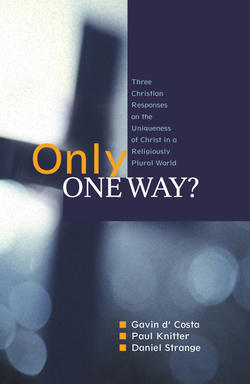Читать книгу Only One Way? - Gavin D'Costa - Страница 5
На сайте Литреса книга снята с продажи.
Preface
ОглавлениеIn Part 1 readers will be presented with three very different approaches by three influential authors in the field: Gavin D’Costa, Paul Knitter and Daniel Strange. The authors give a brief autobiographical background and then outline the theological and practical approaches to other religions in three essays with matching subheadings so that students can see how the topics of philosophical presuppositions, theological presuppositions, creation, fall, God, Christ, Trinity, salvation, eschaton, dialogue, social justice, and mission are handled when related to other religions within these three differing theological approaches. Using these subheadings also creates a unified treatment despite the serious differences between the authors. Part 1 alone will act as a major introduction to this field of study as the authors between them comment on a wide range of approaches other than their own.
In Part 2 each author has written a critique of the other two positions so that the reader will see both questions of method and content being debated in a sophisticated and rigorous manner. This will allow the reader to make their own judgements on questions being discussed as well as facilitate a deeper engagement with contemporary theological debate on these issues. This will also allow for a unique interactive element that will hopefully act as a valuable teaching aid allowing for class or church group discussion, further debate, and even role play by students. Parts 1 and 2 are self-standing and can be used on shorter courses or as basic primary readings and secondary critical readings. Furthermore, Parts 1 and 2 have been designed so that a single theologian’s work can be read, and then two critical views of that work can be pursued.
In Part 3 there are three final ‘defences against the critics’ presented by each author in the light of the critiques presented by their fellow writers. Each theologian sets out to defend and develop their thesis in the light of these criticisms. This level of interaction and in-depth argumentation makes the book especially helpful to thinking through these difficult and important questions.
At the conclusion, each author presents a very brief bibliography for students to engage with further readings related to their approach. We collectively hope that this book will help people reflect upon this pressing and urgent task. As authors we have learnt that in conversation and discussion, we might move closer to the truth. We are grateful to each other for the opportunity to share that process with the reader.
Our thanks to Sven Ensminger for helping with the technical preparation of the manuscript.
Gavin D’Costa
